Filing a workers’ compensation claim can be a difficult process, particularly if your employer denies your injury happened at work or their insurance company is reluctant to offer you a fair settlement. If you have been successful at obtaining benefits, you may still have several questions about what to expect, including when you should go back to work. Everyone has bills to pay, and workers’ comp claims generally cover only two-thirds of your lost income, so you probably want to return to your job as soon as possible. Your employer may be enthusiastic about this prospect, but not for the reasons you think.
The date that you can return to your duties depends on your doctor’s opinion, and you want to believe they have your best interests in mind. However, because workers’ compensation doctors are contracted through your employer’s company, they may pressure you to resume your previous position or seek modified duties before you are truly ready to return. The insurance company is ultimately motivated to pay the minimum benefits, and the doctors contracted through this company can play an instrumental role in accomplishing this goal.
If you suspect your employer may be rushing you back to work, learn how to respond by reviewing the information below, then contact Pratt Williams to discuss your case with our attorneys. We can help you fight back against these tactics to ensure you continue receiving the benefits you deserve.
Can I Be Forced Back to Work After an Injury?
After you are evaluated by a doctor for your workplace injury, they will prepare a report for your employer’s insurance company explaining your medical condition, the treatment they recommend, and the amount of time they estimate it will take for you to return to work. They use this information to assign a disability rating, which impacts the type of benefits you receive:
- If you have a temporary partial disability, you are unable to perform some of your duties for a limited period.
- If you have a permanent partial disability, you are partially impaired in your ability to work, due to a permanent injury.
- If you have a temporary total disability, you are unable to perform any duties for a limited period.
- If you have a permanent total disability, you are unable to return to the workforce altogether, due to a permanent injury.
Your doctor will keep track of your progress in your medical records and make a note in your chart every time they see you. They may recommend that you wait to return to work until you reach “maximum medical improvement,” meaning your condition has stabilized and is unlikely to improve within the next year. Alternatively, they may release you for work while you are still completing treatment or physical therapy but recommend specific limits on your duties to protect from further injury during your recovery period. For example, these work restrictions may state that you can only lift certain amounts of weight, cannot lift anything above shoulder height, or cannot operate heavy machinery. The doctor may also mandate other changes to your schedule, assignments, or working conditions. If they determine that your disability is permanent, you may be eligible for permanent disability benefits.
When the doctor releases you to return to work, they will send you a Notice of Ability to Return to Work. You must receive this before your employer asks you to return to your position, with or without work restrictions. If your doctor reports that you cannot work while you are recovering, your employer cannot force you to do so. If they release you for modified duty but your employer refuses to accommodate your needs, they cannot force you to return, and you are still entitled to receive temporary total disability benefits. You do not have to return to work any earlier than the doctor releases you or accept any duties that violate your work restrictions. If your employer takes action against you for not fulfilling these duties or threatens to take such action, this is a considered a form of discrimination and violates California labor laws.
Am I Ready to Return to Work?
When your employer broaches the topic of returning to work, ask yourself the following questions to ensure you are ready to take this step:
- Have I fully recovered from my injury?
- Has my doctor decided that I have reached maximum medical improvement?
- Have I been cleared to return to work by my doctor?
- Has my doctor released me to perform normal duties, or do they suggest restrictions?
- Do I trust my doctor’s opinion?
- Do I think my employer will be willing to accommodate my needs?
- Do I feel physically able to perform either my previous duties or modified duties that accommodate my injury?
Tips for Returning to Work After a Workplace Injury
If you are able to return to work, keep these tips in mind:
- If you plan to return to the same company, keep in communication with your employer during your recovery so they stay updated about your progress, but do not allow them to pressure you into returning before you are ready.
- Carefully read all doctor’s notes after every visit. Your doctor may release you to work on paper without telling you, and failure to arrive at work on your release date can result in losing your job and termination of your benefits.
- Notify the Workers’ Compensation Board before returning to work and explain any work restrictions the doctor ordered.
- Create a comprehensive “return to work plan” to guide your transition. This should include an acknowledgement by your employer that you have specific restrictions, outline a detailed strategy for how they intend to provide the needed accommodations, and establish an open line of communication between all parties to ensure a safe transition.
- Keep a copy of the doctor’s restrictions on your person while at work to ensure all managers, supervisors, and colleagues are aware of your physical limitations.
- Contact a Los Angeles workers’ compensation attorney immediately if you encounter any issues with your doctor, your employer, or their insurance company.
We Can Help You Make the Transition Back to Work
If your employer refuses to offer your job back without a valid business reason or fails to provide reasonable accommodation for your injury, you can pursue a discrimination claim against them. Pratt Williams can help you understand your options and advocate on your behalf to ensure you are not forced to return to work until it is medically advisable to do so. Contact us today to learn more.





